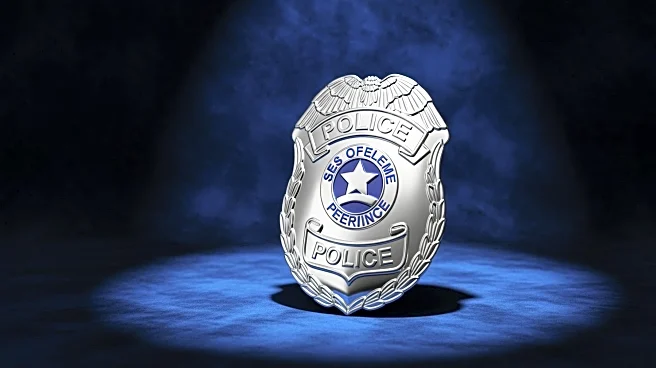What's Happening?
A police officer is defined as any fully-sworn officer or constable employed for the preservation and maintenance of public peace. This definition encompasses the responsibilities and authority granted
to police officers in their role as law enforcement officials. The term 'police officer' reflects the commitment to upholding public order and safety, ensuring the enforcement of laws and regulations.
Why It's Important?
Understanding the definition and role of police officers is crucial for evaluating their impact on public safety and governance. The authority and responsibilities of police officers are central to maintaining social stability and enforcing laws. This definition provides a framework for assessing the performance and accountability of police forces, guiding public policy and reform efforts. The role of police officers is significant for fostering trust and cooperation between law enforcement and communities.
What's Next?
Future discussions may focus on refining the legal and ethical boundaries of police authority, particularly in relation to community engagement and accountability. Policymakers and law enforcement agencies might explore ways to enhance training and resources for police officers, ensuring they effectively serve the public. The definition of police officers may be subject to revisions to address emerging challenges and opportunities in law enforcement.
Beyond the Headlines
The definition of police officers highlights broader implications for law enforcement and community relations. The emphasis on public peace maintenance reflects the need for a holistic approach to policing that prioritizes community engagement and trust. Long-term shifts in policing may involve redefining the role of officers in community safety and crime prevention, fostering a more collaborative and inclusive approach to public safety.










